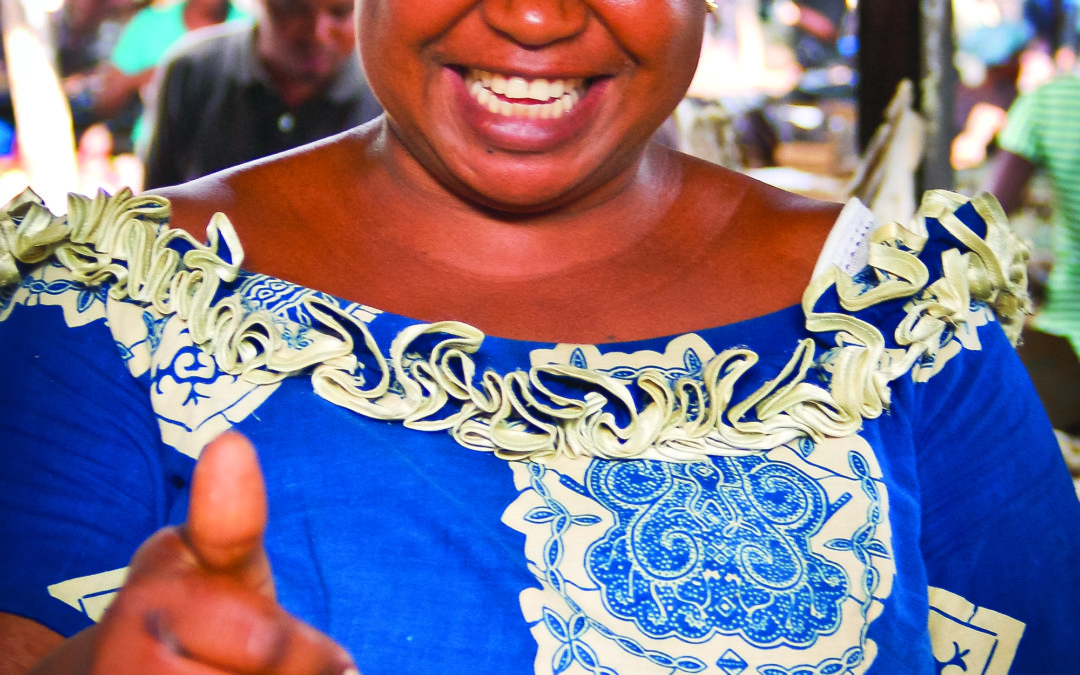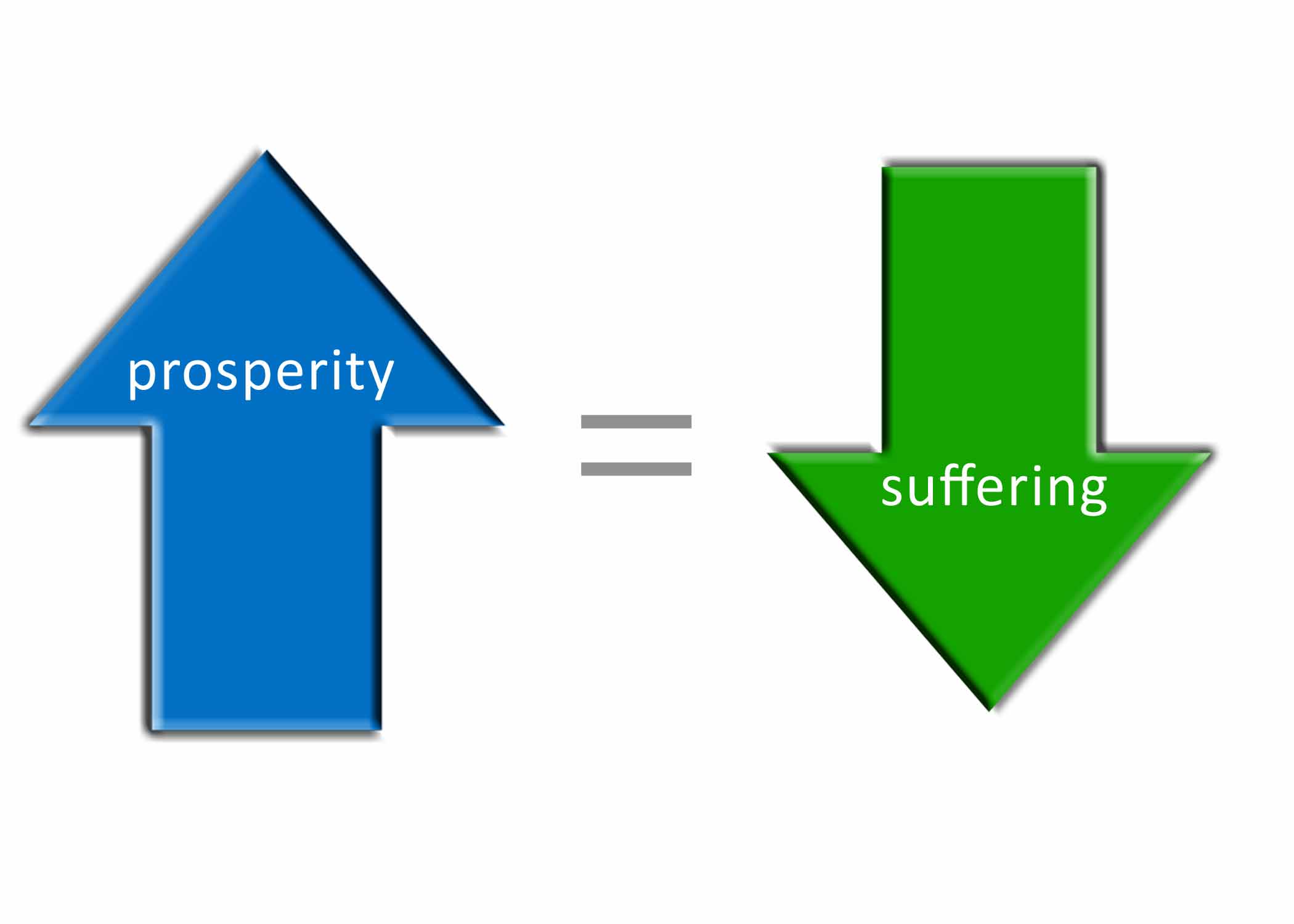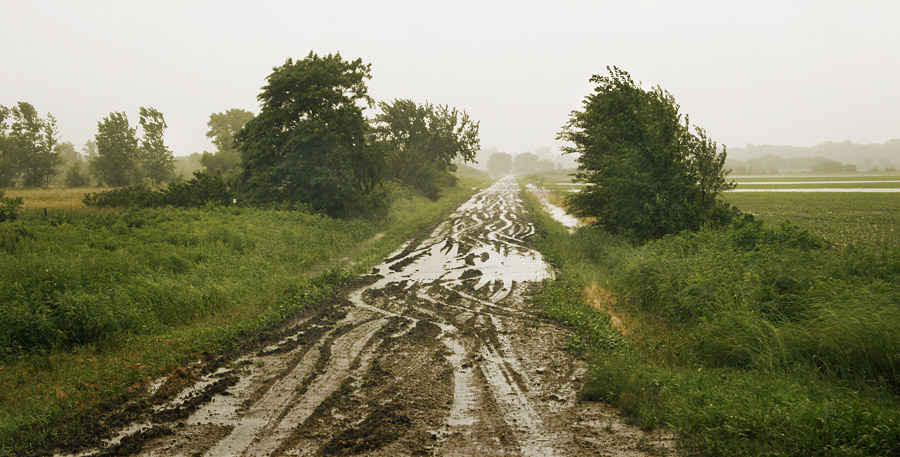
by Chris Horst | Oct 9, 2012 | Blog |
Three sentences. That’s all it took to know Reyna was extraordinary. I met her just a few days ago. Reyna’s spirit reverberated in her Dominican home and into the heart of this American visitor. And she unsettled me in profound ways with her unassuming heroism.
Reyna’s modest home fronts a dirt alleyway in the town of El Seibo, a busy city in the heart of the Dominican Republic. Life isn’t easy in her neighborhood. Deficient infrastructure, education, and sanitation shackle her community. But Reyna’s smile wasn’t lacking. She approaches life like an eager Coloradan advances on a challenging hike—with vigor, optimism and confidence. Her enthusiasm is surprising because of poverty’s grip on her city. But it is remarkable because of her impairment. Reyna was blinded at the start of her adult life. At the age of 20, Reyna lost her sight.
“God has given me so much. My job is to give back to others.”
An embarrassing lump grew in my throat when she voiced those words. Reyna was a charity case poster child. She could have starred in a Sally Struthers infomercial. Dirty water. Substandard hospitals. Single woman. Blind. But Reyna didn’t see it that way. Her impairment didn’t cloud her identity. Reyna knew she was a strong, purposeful and capable woman. She could see she was designed in the very image of her Creator.
Reyna has unhampered ambition. She launched a business and it grew dramatically. The corner Target, her store provides it all: Rice, flour, cooking oil, toiletries and more. She trusts her faithful clients to pay in full. When new customers stop in, however, she keeps their payments separate till a faithful client stops in to verify. She treats her customers with class and only sells the best products. And her business has grown enormously profitable.

Reyna
And that’s a good story: The rags-to-riches blind entrepreneur. But Reyna’s story was just beginning. She’s since taken in her sister’s two children and raised them. Her nephew now studies at the Dominican Air Force academy. Her teenage niece aspires to medical school. She is a leader at her church. While she answered my many questions, she interrupted our conversation with a phone call. That might have been rude, but in a very “that’s Reyna” sort of way, the caller was a young woman in her church who was preparing for a surgery and looking for her counsel. Reyna refuses to succumb to, or even acknowledge, low societal expectations.
“God says that, ‘Whoever is generous to the poor lends to the Lord,’ she recounted. “We’re called to be openhanded in our success and that’s what I try to do.”
It’s as if she doesn’t get it. Reyna, I see you as the poor in this proverb. You’re the blind woman in the developing country. She deflects what I might assume about her because she knows what her Father thinks about her. And she’s chosen to share in her success. She extolls everyone to embrace the gifts God’s given them.
“There a many blind people in my city that are not working. Why? They are more than capable. This is a big problem for us.”
Reyna captivated my imagination for the hour I stood in her home. She, of course, had prepared a patented dulce de leche dessert for us. And, of course, she cried several times in gratefulness for all God had given her. It’s what heroes do. Nothing fabricated and no veneers. Reyna was created to create and gifted to gift. No barrier was going to keep her from seeing that.

by Chris Horst | Jul 13, 2011 | Blog |
Lush vegetation creeps onto the roads wherever it’s permitted to do so. Tired political posters adorn the street signs, interrupting the brightly-painted buildings which line the crowded streetscape. Our bus darts through the tight thoroughfares in San Pedro, avoiding overtaxed motorcycles with nearly impossible precision. The streets teem with Dominican culture: Venders peddling just-picked-from-the-field sugarcane, scads of Chihuahuas scampering behind their owners and uniformed school kids winding through the bustle toward their classrooms.
I like it here. There is richness in the culture and authenticity in the people. My work has been the impetus for my recent travels here. Traveling with groups of HOPE donors, we visit the courageous Dominican entrepreneurs we serve throughout the country. Each trip looks different. The donors, entrepreneurs, and communities we visit are unique. I see new places and experience fresh stories. There is one theme, however, which connects all these trips. I’m not proud of it, but I’ve committed one regrettable act on every trip I’ve taken here, an act I’ve only recently even identified.
While navigating through the DR, we always stumble upon a sad neighborhood. These communities, normally labeled shanty towns, usually border sugarcane plantations and they reflect a much cloudier image of the spirited Caribbean culture. Like a dandelion-rich lawn on a well-manicured suburban street, these poor communities stick out. The evident material poverty is jarring. And it’s in these places—on every trip—where it happens: I slip out my camera and capture the misery. I find an especially forlorn-looking mom or a cobbled-together home (preferably both) and snap away.
These snapshots, illuminating the most desperate scenes I can find, become like trip trophies. They’re the type of pictures which make me feel guilty about complaining. About anything. They remind me of how nice my house is and how full my closets are and of just how very much I have. The pictures hold just a glimmer of redemptive value in this convicting power. But, when I snap these candids, I define those communities by what they lack. With each flicker of my camera lens, I make one more strike against those places, stamping them by their deficiencies.
Our charity is often the same. When given the option between defining people by what they have or by what they lack, we normally choose the latter. It’s easier to meet needs than it is to unlock potential. It’s quicker to heal wounds than to train doctors. It’s simpler to raise money to give stuff than for training to make stuff. But, I know I’d sure rather be known for what I do well than by what I lack.
The LORD your God is in your midst,
a mighty one who will save;
he will rejoice over you with gladness;
he will quiet you by his love;
he will exult over you with loud singing.
(Zephaniah 3:17 ESV)
I’m thrilled to serve a God who truly knows me. A God who does not define me by my weaknesses. A Creator who made me in his image. A Father who “exults” over me, his child. These truths convince me that If God and I sojourned across the Dominican together, his pictures would look strikingly different than mine.

snapshot of dignity

by Chris Horst | Nov 17, 2009 | Blog |
This is part one of a three-part series, “How Then Shall We Help?”
“It was an amazing mission trip. I can’t tell you how happy and content all the people were despite how little they had.”
Have you heard comments like this before? Have you said this before? I have said it several times. It’s a recurrent reflection after trips to poor countries because it is compelling to see joy in the faces of children, parents and grandparents despite their modest means. I specifically remember a joyful little boy from my last trip to the Dominican Republic who was running around wearing nothing but a ratty, tattered t-shirt. His face was dirty, he had few possessions, but, in the midst, he was content.
I have been thinking a lot about this the past few months. Christians in this country, I think, recognize we are called to help the poor. Biblically, there is almost no book in scripture devoid of God’s commands to care for the less fortunate. And, even in our secular culture, it is in vogue to care about “social justice.” It is hip to care about Africa and to buy fair trade coffee. My concern is in the outcome of this groundswell of excitement in “giving back.” I believe the end-game for Christians, often, is supporting any program, project or initiative which increases the prosperity of the poor.
The line of reasoning goes like this: Increased prosperity leads to decreased suffering.

At first glance, I agree with this statement. There are poor people in this world. As Christians, we are called to help them out. We help them by providing education, medical care, housing, language training, business loans, savings accounts, and clean water—all to help them increase their prosperity. As a result, this line of reasoning states, their suffering decreases. Increased prosperity leads to decreased suffering, right?
What if, however, when we help those poor, happy, underprivileged families by providing them with things, they develop some of the same issues our over-privileged children have? Entitlement, jealousy, materialism, obesity, greed. What if, in our attempts to help, rather than decreasing it, suffering just takes on a new identity? I believe most American Christians would agree that increased financial prosperity does not lead to increased fulfillment. We do not have to look beyond our own families and friends to know that material wealth has very little influence on personal joy, satisfaction or success. But, it seems to me that reality has little bearing or influence on our attempts to help the poor.
Now, don’t get me wrong. I work for an organization which helps the poor. I absolutely believe we are to sacrificially serve and “give back” to those in our communities and to those around the world. But, just helping people increase their prosperity cannot be our end-game. In fact, helping the poor does not always decrease their suffering. Next month I will continue to explore these issues while grappling with the question: How then shall we help?

by Chris Horst | Oct 22, 2009 | Blog |
I love online banking and e-commerce. I love the convenience of checking account balances, making transfers, and purchasing products in sweatpants from my living room. I’ve quickly become accustomed to the ease of doing business from home, although this luxury is unique to the past decade. It’s easy to forget that just ten years ago online banking was nothing but a dream.
Last month I visited HOPE’s work in the Dominican Republic. There, I had the privilege of meeting our clients, seeing their businesses and soaking in the culture of a country I have come to love. One of the questions I asked to a few of the community banks (groups of 15-30 clients) was “Why HOPE? Why did you choose to become a HOPE client?” Time and time again, in different communities throughout the country, our clients responded, “Because HOPE came to us.”
It’s hard to think back to what life was like ten years ago, when we had to drive to the bank or the store for just about everything. It’s even more challenging to imagine how extremely inconvenient it would be if we lived a few hours from the center of town, where a trip to the bank or to the store meant a day’s worth of travel. Yet, this is the reality for many of our clients. In Congo, our clients often live two or more hours away from the closest commercial banks, large stores, and even HOPE branch offices. To service these remote communities, our loan officers must travel two hours by bus on shoddy dirt roads or, during the rainy season, traipse hours by foot through the mud to reach these communities.

In that context, you understand why they list it as a primary reason for choosing HOPE. Our hardworking and diligent loan officers go into the communities where our clients live. This is about even more than convenience. That message—No, don’t come to us. We’ll come to you—speaks dignity, loud and clear, into the lives of our clients and into their communities. They matter. Their neighborhoods are not forgotten. When everyone tells them they aren’t, we tell them they are worth our time.
One client’s comments are still ringing in my ears. I asked him, “Why HOPE?” …and he responded, “When everybody else makes us come to them, you come to us.”







